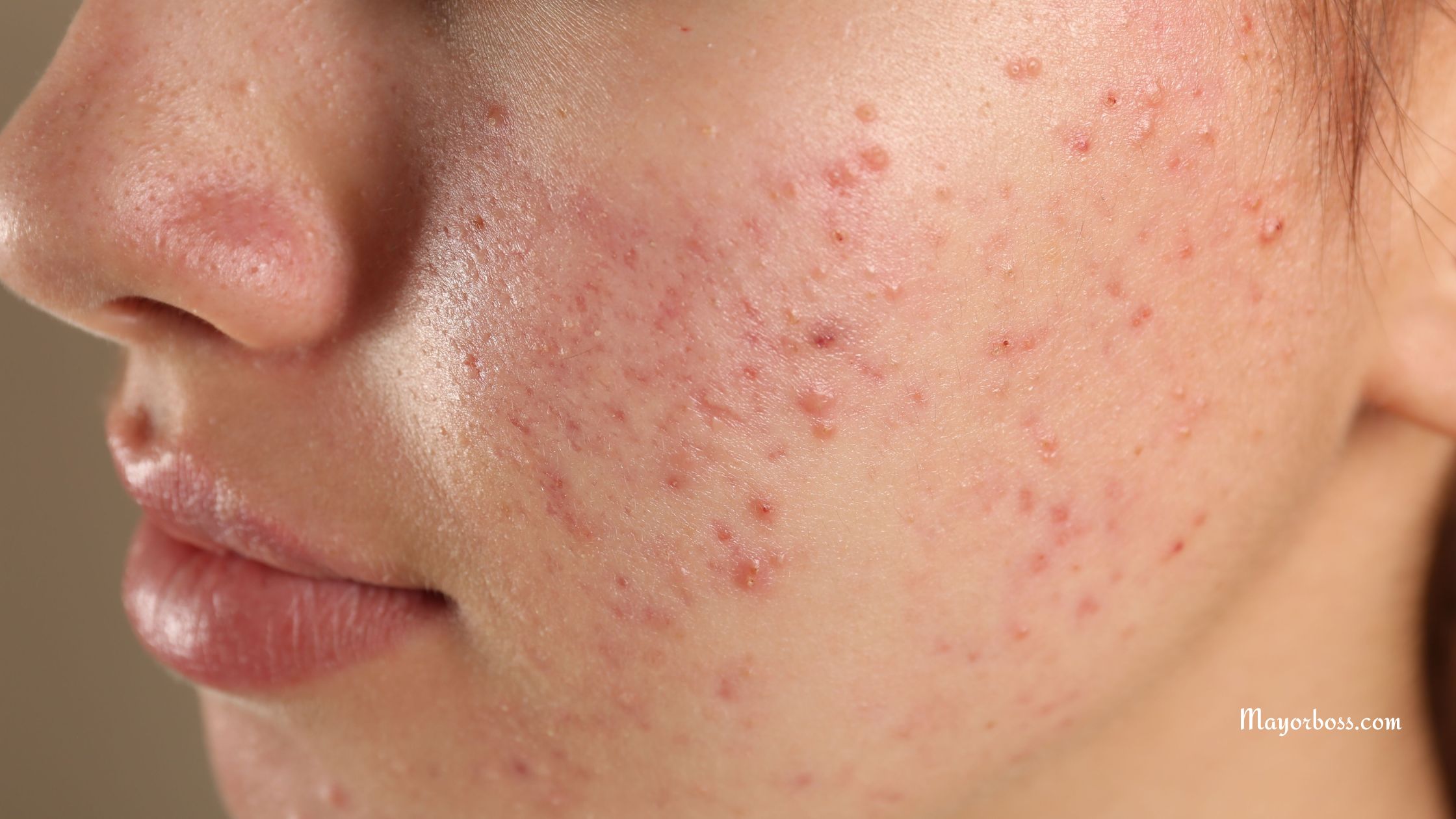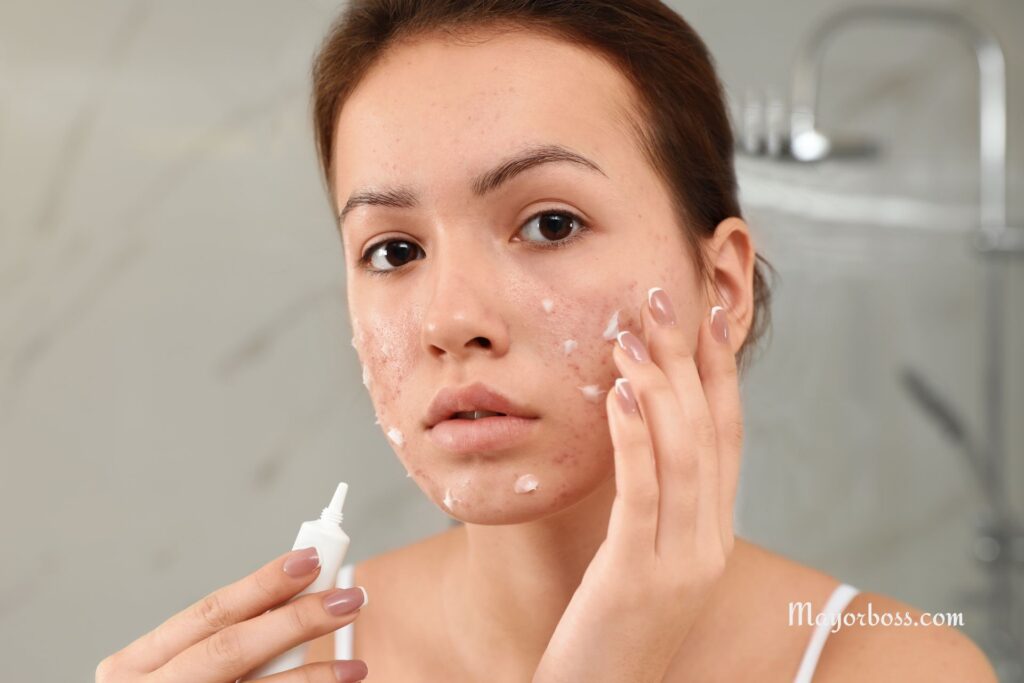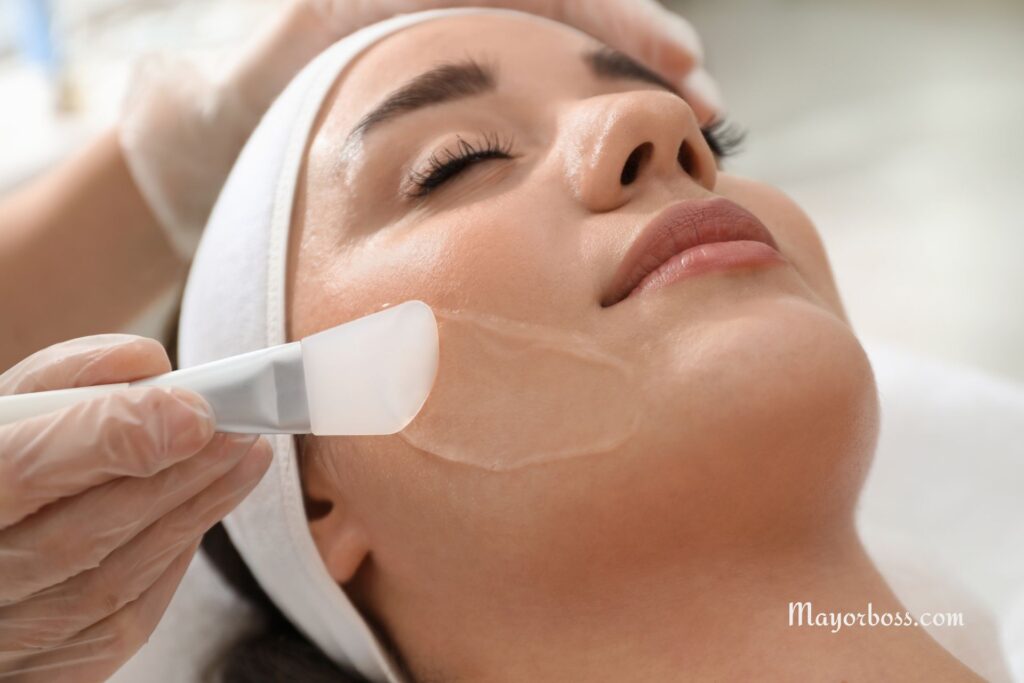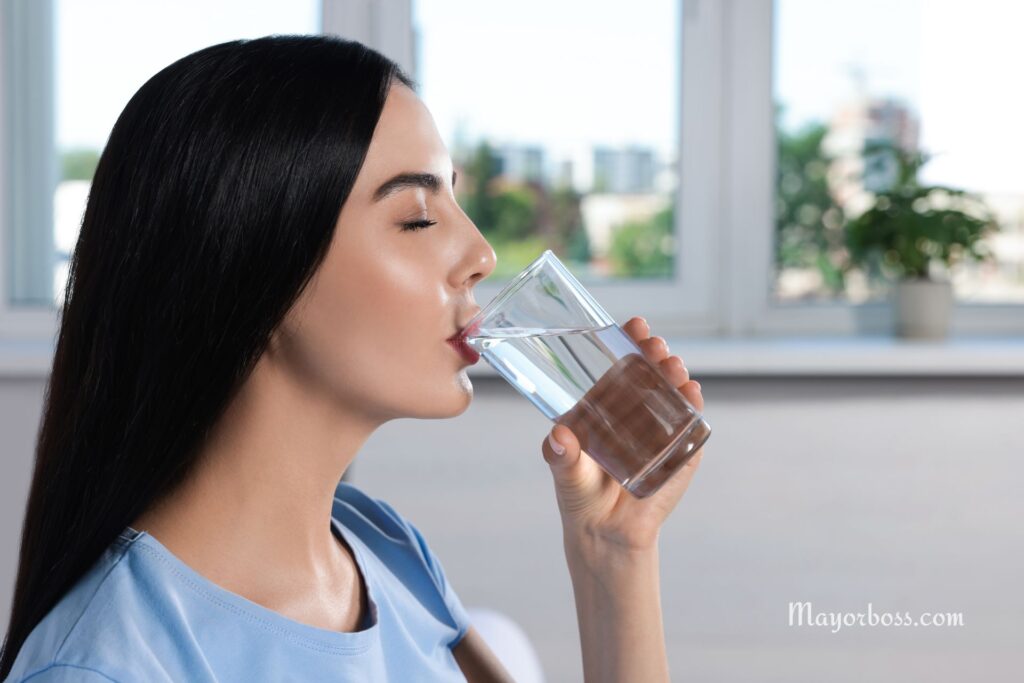Stop Putting Up With Acne—Here’s How to Get Rid of It
Acne is a common skin problem that many people face. It can be painful and may make you feel unhappy about your appearance. This article generally explains what acne is, what causes it, and how you can treat it. With a simple skin routine and a few lifestyle changes, you can help clear your skin and feel better.
What Is Acne?

Acne happens when pores in your skin become blocked. Pores are tiny openings that let oil and sweat come out. When oil, dead skin, and sometimes dirt build-up, these pores get blocked. This blockage can lead to pimples, blackheads, whiteheads, or red bumps. Acne is most common during the teenage years, but adults can have it too. Knowing how acne works is the first step in finding a way to treat it.
What Causes Acne?
Several things can cause or make acne worse. Here are some common causes:
Hormones
During puberty, your body makes more hormones. These hormones make your oil glands produce extra oil. When too much oil mixes with dead skin cells, it can block your pores. This is why many people see more acne during periods of change in their body.
Family History
If your parents had acne, you might get it too. Your genes can affect how your skin makes oil and how it reacts to bacteria. A family history of acne can increase your chance of getting it.
Diet
What you eat may affect your skin. Foods that are high in sugar or made from white flour, like white bread, can sometimes worsen acne. Some people also notice that dairy products can lead to more breakouts. Eating a balanced diet with fresh fruits and vegetables may help improve your skin.
Stress
Stress does not cause acne directly, but it can make acne worse. When you are stressed, your body makes extra hormones that may increase oil production in your skin. This extra oil can block your pores and lead to more breakouts.
Skin Care Habits
How you take care of your skin is important. Using harsh cleansers or scrubbing too hard can irritate your skin. Overwashing or using products that are too strong may worsen acne. It is best to use gentle products that suit your skin type.
A Simple Skincare Routine for Acne

A good skincare routine can help control acne. Follow these steps to care for your skin:
Cleanse Your Skin
Wash your face twice a day (in the morning and evening) with a mild cleanser. Use lukewarm water, and do not scrub hard. Cleaning your face removes extra oil and dirt without causing irritation.
Moisturize Daily
Even if your skin feels oily, it still needs moisture. Use an oil-free, non-comedogenic moisturizer. Moisturizers help keep your skin balanced and can reduce dryness from acne treatments.
Use Acne Treatments
Over-the-counter products may help clear your skin. Look for creams or gels that contain benzoyl peroxide or salicylic acid. Benzoyl peroxide helps kill bacteria, and salicylic acid helps unclog pores. Follow the directions on the label and give the product time to work.
Avoid Touching Your Face
Your hands carry oil and germs. Try not to touch your face or pick at your pimples. This helps prevent new acne from forming and reduces the risk of scars.
Choose the Right Makeup
If you wear makeup, choose products labeled as non-comedogenic. These products do not block your pores. Always remove your makeup before you go to sleep.
Medical Treatments for Acne

Sometimes, home care is not enough to clear acne. If your acne is severe or does not improve, a doctor can help you with other treatments. Here are some common medical options:
Topical Retinoids
These are medicines that you apply to your skin. They help keep your pores clear and reduce the number of pimples. They also improve the look of your skin over time.
Oral Antibiotics
For moderate to severe acne, a doctor might give you antibiotics in pill form. These medicines lower bacteria levels and reduce inflammation in your skin. They are usually used for a short time.
Hormonal Therapy
For some women, acne is linked to hormones. Certain birth control pills or other hormone treatments can help reduce acne by lowering the extra oil production.
Isotretinoin
Isotretinoin is a strong medicine used for severe acne that does not get better with other treatments. It reduces oil production and inflammation. Because it can have serious side effects, expert dermatologists monitor its use very closely.
Chemical Peels
Chemical peels use a chemical solution on your skin to remove the top layer. This treatment helps remove dead skin cells and unclog pores. It can also reduce acne scars and improve skin texture. An expert dermatologist or a skin care expert usually does chemical peels. You might need more than one treatment to see the best results. After a chemical peel, your skin may be red and peel for a few days. It is important to follow your dermatologist’s advice on how to care for your skin after a peel.
Lifestyle Changes to Help Your Skin

Changing your daily habits can also help reduce acne. Here are some ideas:
Eat a Healthy Diet
A balanced diet supports both your body and your skin. Eat plenty of fruits, vegetables, lean proteins, and whole grains. If you notice that sugary foods or dairy products make your acne worse, try to limit them.
Drink Enough Water
Water is important for healthy skin. Drinking about eight glasses of water a day can help keep your skin hydrated and clear.
Manage Your Stress
Stress can make acne worse. Try to find ways to relax, such as exercise, reading, or spending time with friends. Even simple activities can help lower your stress levels.
Get Enough Sleep
Sleep helps your body repair itself. Aim for seven to eight hours of sleep every night. Good rest supports skin healing and overall health.
When to See a Doctor
If you try a good skincare routine and healthy habits, but your acne does not get better, it may be time to see a doctor. A doctor or dermatologist can suggest stronger treatments to help clear your skin. Early treatment is important to stop acne from leaving scars.
The Bottom Line
Acne is a common condition that many people face. It can be painful and affect how you feel about yourself. By learning what causes acne and taking proper care of your skin, you can reduce breakouts. Start with a simple skincare routine and over-the-counter products. If these do not work, talk to an expert dermatologist about other treatments.
Remember to eat healthy, drink enough water, get plenty of sleep, and manage your stress. These steps help your skin and your overall health.
